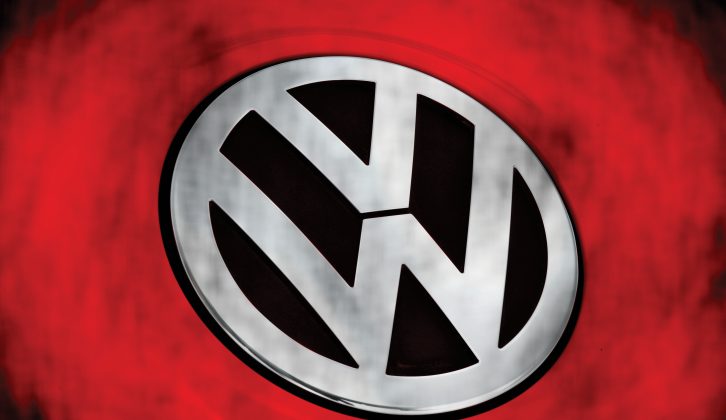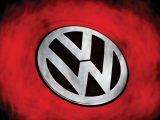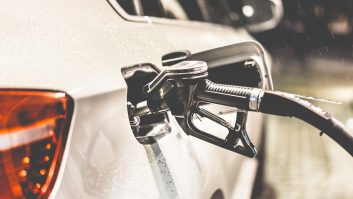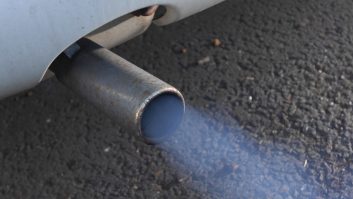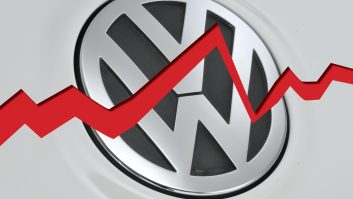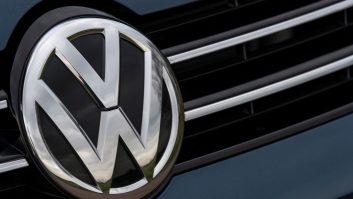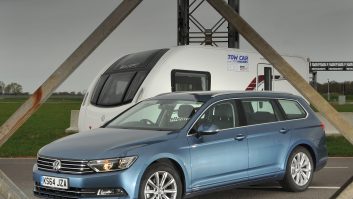The Volkswagen emissions scandal continues to rumble on, with a recall of 11 million vehicles worldwide – including more than a million in the UK.
Earlier this week VW‘s UK boss, Paul Willis, was hauled over the coals by MPs on the Transport Select Committee. He admitted that the ‘defeat device’ which had allowed VW to cheat US emissions tests will have affected the emissions of cars sold in Britain and the EU.
“It seems from what I understand – and I’m not an engineer – that the system of gas regulation in the engine influenced the NOx output of cars. We mishandled the situation in so far our engines behaved differently within the testing regime to the real world. That’s why we need to fix the cars, that’s why we need to get the customers in, and that’s why we need to put the cars right.”
If you own a VW Group diesel, our Q&A below will guide you through the key points of ‘dieselgate’ and what you should do if you tow your caravan with a diesel VW.
How many vehicles are affected in the UK?
Around 1.2 million in total. It’s not just Volkswagen cars, but any Volkswagen Group vehicle with a EA189 or EA111 engine. This means recent diesels with 1.2-, 1.6- and 2.0-litre capacities. There are 508,276 VW passenger cars, 393,450 Audis, 76,773 Seats and 131,569 Škodas. In addition, 79,838 VW Group commercial vehicles are affected.
How do I know if my car is part of the recall?
Engine codes like EA189 mean little to the average driver, but Volkswagen and the other VW Group companies have set up special websites so owners can check if their car is subject to the recall.
Make a note of the VIN of your car (you’ll find it at the bottom of the windscreen), then follow the links below to the website for the brand of car you own. Just click on the name of your car’s manufacturer: Volkswagen, Audi, Seat, Škoda.
What should I do if my car is part of the recall?
For now, sit tight. The VW Group is working on solutions to make the engines meet the required standard without any illegal software, and will contact owners when it’s ready to carry out modifications.
Then 1.2- and 2.0-litre diesels are expected to be modified using revised software alone. It’s thought that the 1.6-litre engines will need new fuel injectors as well as a software patch. Whatever the technical solution, it will be free of charge to owners.
Bear in mind that changes need to be made to a huge number of cars across the globe. Correcting the emissions of 11 million vehicles worldwide is a huge task for the VW Group and won’t happen overnight. The technical solutions are expected to be approved by the end of the year, but it’s thought that the recall itself could take a further 12 months.
In the meantime the car will still be safe to drive.
Am I getting worse economy because VW cheated the tests?
Unlikely. The ‘defeat device’ was used to improve NOx emissions, not to improve fuel economy. VW has stated that once the recalled engines have been modified there should be no difference to their fuel consumption.
Will I have to pay more in tax?
No. The government has stated that Vehicle Excise Duty will remain the same for the cars now and after they have been modified.
Is my Volkswagen diesel now worth less?
This scandal has hit VW’s reputation hard, and it won’t have done the used values of VW diesels any favours. However, one of the leading trade guides has suggested that the drop in value is slight.
Our bet is that values will gradually return to pre-scandal levels, or close to them, after a year or so.
Are new Volkswagen cars fitted with the ‘defeat device’?
Since 1 September this year, all new vehicles must now meet the tough Euro 6 emissions standard. Volkswagen has publicly stated that Euro 6 engines all meet the standard with nothing untoward hidden in the software. We haven’t seen any evidence to disprove this.
Volkswagen and the other VW Group brands are allowed to sell older vehicles which don’t meet Euro 6 if they were already held in stock. However, these cars have been withdrawn from sale until they have been modified to meet the regulations without any illegal software.
Are other manufacturers cheating?
It’s possible, but there’s no smoking gun yet. Emissions controlling technologies have improved enormously in the past few years, but the new Euro 6 standard is much harder to meet than the earlier Euro 5 regulation.
Part of the trouble is that the way emissions are tested is so flawed that the system is open to abuse. Cars are tested in laboratory conditions, without any further testing on the road to check if similar results are possible in the real world.
How can we stop manufacturers cheating the tests in future?
We need a better test regime than the outdated and unrealistic New European Driving Cycle. Fortunately that’s what we’re likely to get in 2017.
The EU is pushing to introduce Worldwide harmonised Light vehicles Test Procedures (WLTP), plus a Real Driving Emissions (RDE) test which would flag up anomalies between results in the lab and out on the road.
Some manufacturers have been resisting the introduction of this new test regime, but the VW scandal has made it more difficult for manufacturers to argue against the new tests without appearing to have something to hide.
We think the new regime can’t come soon enough, as it should provide more realistic fuel economy and emissions figures. Just as importantly, adding the RDE test will make it much harder to cheat.
If your car is part of the recall, for now, sit tight
